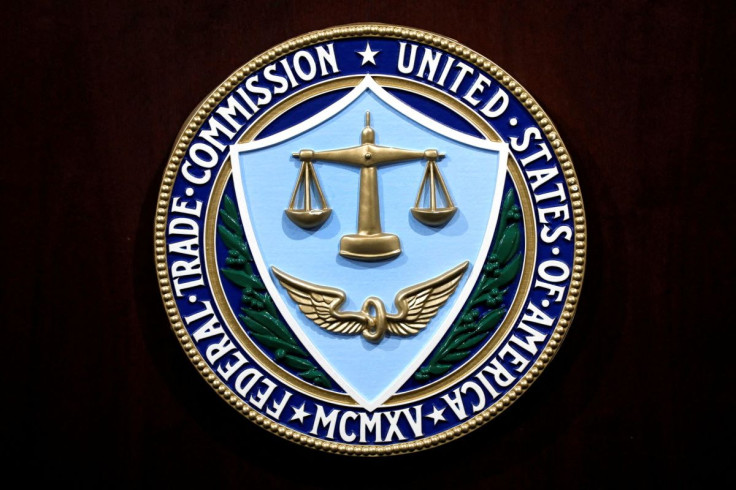Click To Cancel: Biden, Lawmakers Back FTC's Proposed Rule For Quick Subscription Opt-Out
KEY POINTS
- The FTC wants to make opting out as easy as the sign-up process
- FTC Chair Lina M. Khan says this would help save time and money for consumers
- The proposal was approved with a 3-1 vote
President Joe Biden and two Democratic lawmakers have expressed support for the Federal Trade Commission's (FTC) proposal to introduce a "Click to Cancel" rule that will make opting out of subscriptions and memberships as easy as the sign-up process.
"The new click to cancel provision, along with other proposals, would go a long way to rescuing consumers from seemingly never-ending struggles to cancel unwanted subscription payment plans for everything from cosmetics to newspapers to gym memberships," the FTC said in a press release Thursday.
FTC Chair Lina M. Khan said some businesses were found to "often trick" clients into paying for subscriptions that they don't want or have not even signed up for.
Khan explained the "Click to Cancel" rule would help save time and money for consumers as it would require companies to make subscription cancelation as easy as signing up.
NEW: The FTC is taking aggressive action to stop one of the biggest business scams — “click to subscribe, call to cancel.”@linakhanftc explains the agency’s new rule. pic.twitter.com/kQbXFwK7yt
— More Perfect Union (@MorePerfectUS) March 23, 2023
President Joe Biden welcomed the proposed rule, saying many companies waste the time and money of Americans on "things they may not want or need."
Too often, companies make it difficult to unsubscribe from a service, wasting Americans’ time and money on things they may not want or need.
— President Biden (@POTUS) March 23, 2023
I support @FTC's proposal requiring companies to fix this.
It shouldn’t be harder to cancel a service than it was to subscribe for it. https://t.co/4EzRGGUBDo
The FTC said the proposal was part of its efforts in reviewing the 1972 Negative Option Rule, which it uses "to combat unfair or deceptive practices related to subscriptions, memberships, and other recurring-payment programs."
Aside from making the opt-out process easier and faster, the proposed rule would also require businesses to first ask customers if they want to hear additional pitches before canceling their subscriptions.
Furthermore, service providers will have to issue annual reminders to subscribers enrolled in negative option programs before any automatic renewals. In negative option programs, sellers deem non-canceled goods as an agreement from the consumer to keep paying.
Khan told reporters ahead of the FTC's announcement that the agency got "countless complaints" about subscriptions "that they don't want," The Verge reported.
The FTC approved the proposal with a 3-1 vote. Commissioner Christine S. Wilson opposed the proposed rule as she believes the Notice of Proposed Rulemaking (NPR) was too broadly written, while commissioners Alvaro Bedoya and Rebecca Kelly backed the proposal.
"The proposed Rule the Commission announces today may achieve the goal of synthesizing the various requirements in one rule – but it also sweeps in far more conduct than previously anticipated," Wilson said in her five-page statement.
While she agrees that many businesses fail to clearly disclose information regarding terms related to negative option programs, Wilson argued it "is used lawfully and non-deceptively in a broad array of common transactions." She added the "Click to Cancel" proposal does not address the issue of whether businesses may pull out their negative option features "that consumers prefer and enjoy" due to fear of possible liability.
Meanwhile, Sen. Chris Van Hollen, D-Md., and congresswoman Yvette Clarke, D-N.Y., expressed support for the proposed rule. "This rule goes hand-in-hand with our Consumer OPT-IN Act, which we plan to reintroduce in the coming weeks," the lawmakers said in a joint statement.
Companies shouldn't be able to trick Americans into signing up for subscriptions they don't want.
— Senator Chris Van Hollen (@ChrisVanHollen) March 23, 2023
This @FTC rule will help consumers fight back—and goes hand-in-hand with my Consumer OPT-In Act w/ @RepYvetteClarke to put an end to free trial scams & dishonest marketing tactics. https://t.co/TwcPwJ8DNc
The proposed legislation, introduced in 2021 by Van Hollen and Clarke, "puts the onus on companies, instead of consumers, in renewing or extending contracts." The bill, Consumer Online Payment Transparency and Integrity Act or Consumer OPT-IN Act, is focused on improving information disclosure for consumers regarding "dark patterns that subtly trick users."
Van Hollen said at the time that the Consumer OPT-IN Act will require sellers and companies to provide clear and transparent terms for subscriptions, especially for free-trial programs that he said often lead to "near-impossible" opt-out processes.
Consumers and sellers alike will be able to submit comments on the "Click to Cancel" rule within a period of 60 days once it is published in the Federal Register, but an FTC spokesperson said officials still do not know when it will be available for public comments, NBC News reported.
Just this month, the FTC fined Fortnite maker Epic Games for allegedly "tricking" players into making "unwanted purchases" through the popular online video game.
Aside from a fine of $275 million for violating children's privacy law, Epic Games was asked to pay a separate $245 million that will be used to pay back players.
Last year, the agency cracked down on communications firm Vonage for alleged deceptive business practices that charged customers monthly fees of up to $50 without their knowledge. The Ericsson subsidiary agreed to pay $100 million in settlement.

© Copyright IBTimes 2024. All rights reserved.






















